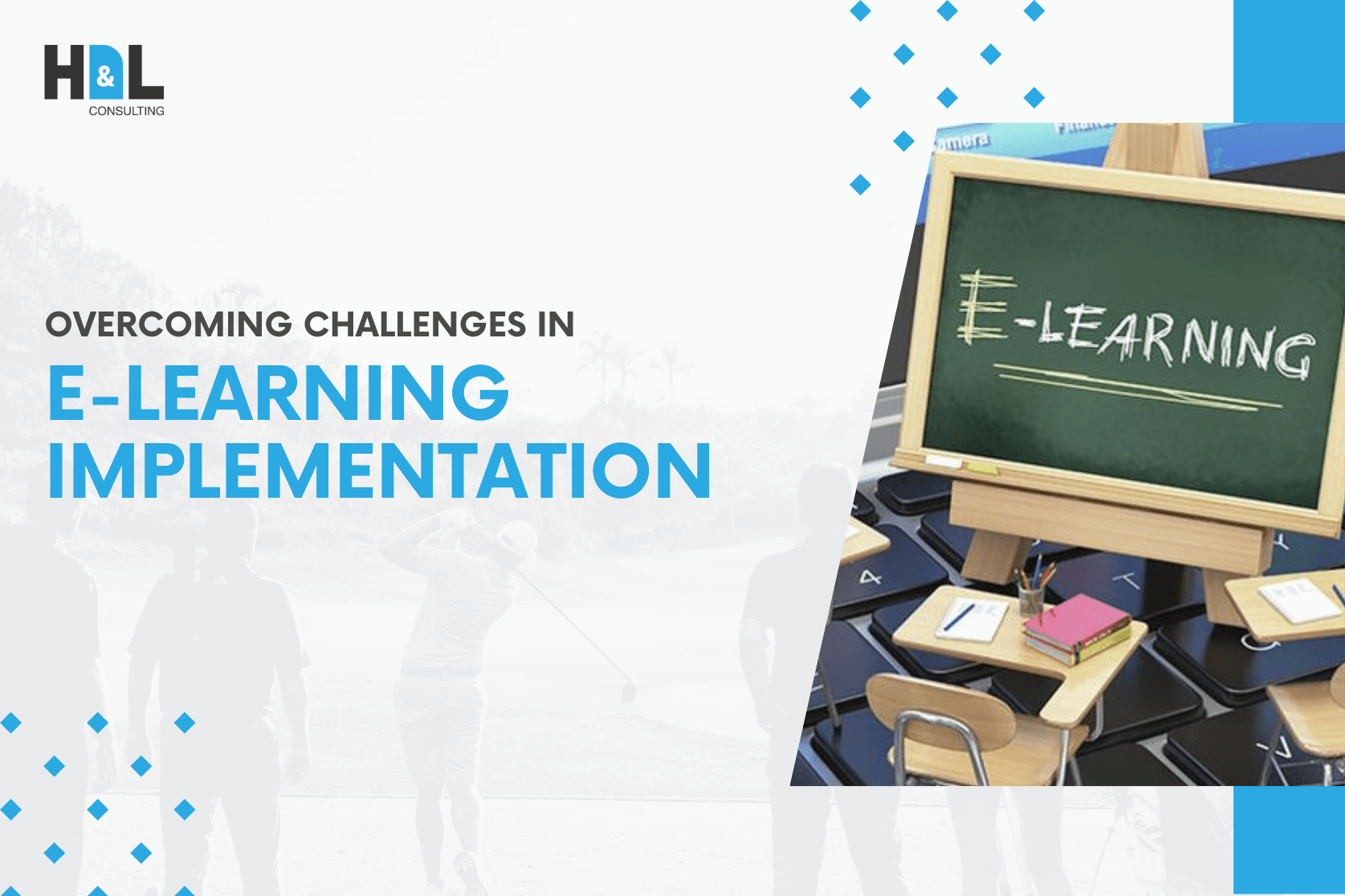E-learning has revolutionized the way education and training are delivered, offering flexibility, accessibility, and cost-effectiveness. However, implementing e-learning solutions is not without its challenges. Organizations and educational institutions often face various obstacles that can hinder the successful adoption and integration of e-learning. This blog explores common challenges in e-learning implementation and provides strategies to overcome them.
1. Technical Issues
One of the most significant challenges in e-learning implementation is dealing with technical issues. These can range from inadequate internet connectivity and outdated hardware to software compatibility problems and technical glitches.
Key Challenges:
- Inadequate internet connectivity
- Outdated hardware and software
- Technical glitches and system crashes
Strategies to Overcome
- Invest in Infrastructure: Ensure that both the organization and learners have access to reliable internet connections and up-to-date hardware and software.
- Technical Support: Provide robust technical support to address any issues promptly. This can include a dedicated helpdesk, FAQs, and troubleshooting guides.
- Regular Updates: Keep e-learning platforms and tools updated to prevent compatibility issues and enhance performance.
2. Resistance to Change
Resistance to change is a common challenge when introducing new technologies and methodologies. Employees and learners may be accustomed to traditional learning methods and may be hesitant to adopt e-learning.
Key Challenges:
- Reluctance to adopt new technologies
- Preference for traditional learning methods
- Fear of the unknown
Strategies to Overcome:
- Change Management: Implement a change management strategy that includes clear communication about the benefits of e-learning and how it will improve the learning experience.
- Training and Support: Provide training sessions and resources to help learners and employees become comfortable with the new e-learning tools and platforms.
- Involve Stakeholders: Engage stakeholders in the planning and implementation process to gain their buy-in and support.
3. Lack of Engagement
Keeping learners engaged in an online environment can be challenging. Without face-to-face interaction, learners may feel isolated and less motivated to participate actively.
Key Challenges:
- Reduced learner engagement
- Feelings of isolation
- Lack of motivation
Strategies to Overcome:
- Interactive Content: Incorporate interactive elements such as quizzes, simulations, and gamified content to make learning more engaging.
- Social Learning: Foster a sense of community by incorporating discussion forums, group projects, and peer-to-peer interactions.
- Regular Feedback: Provide regular feedback and encouragement to keep learners motivated and engaged.

4. Content Quality and Relevance
Ensuring that e-learning content is of high quality and relevant to learners’ needs is crucial for the success of any e-learning program. Poorly designed content can lead to disengagement and ineffective learning.
Key Challenges:
- Poorly designed content
- Irrelevant or outdated information
- Lack of alignment with learning objectives
Strategies to Overcome:
- Content Development: Invest in professional content development to create high-quality, engaging, and relevant e-learning materials.
- Regular Updates: Continuously update content to ensure it remains current and aligned with learners’ needs and industry trends.
- Feedback Mechanisms: Implement feedback mechanisms to gather input from learners and make necessary improvements to the content.
5. Assessment and Evaluation
Assessing and evaluating learners’ progress in an online environment can be challenging. Traditional assessment methods may not be suitable for e-learning, and there may be concerns about online assessments’ integrity.
Key Challenges:
- Difficulty in assessing learner progress
- Concerns about academic integrity
- Limited feedback mechanisms
Strategies to Overcome:
- Diverse Assessment Methods: Use a variety of assessment methods, including quizzes, assignments, projects, and peer assessments, to evaluate learners’ progress.
- Proctoring Tools: Implement online proctoring tools to ensure the integrity of assessments.
- Regular Feedback: Provide timely and constructive feedback to help learners understand their progress and areas for improvement.
6. Accessibility and Inclusivity
Ensuring that e-learning is accessible to all learners, including those with disabilities, is essential for creating an inclusive learning environment. Failure to address accessibility can exclude a significant portion of the learner population.
Key Challenges:
- Inaccessible content for learners with disabilities
- Lack of inclusive design principles
- Compliance with accessibility standards
Strategies to Overcome:
- Accessible Design: Follow accessible design principles, such as providing alternative text for images, captions for videos, and ensuring compatibility with screen readers.
- Inclusive Content: Create content that is inclusive and considers the diverse needs of all learners.
- Compliance: Ensure that e-learning platforms and materials comply with accessibility standards and regulations.

Final Thoughts
Implementing e-learning solutions comes with its set of challenges, but with careful planning and the right strategies, these obstacles can be overcome. By addressing technical issues, managing resistance to change, enhancing learner engagement, ensuring content quality, implementing effective assessment methods, and promoting accessibility and inclusivity, organizations can create successful e-learning programs that meet the needs of all learners.
E-learning has the potential to transform education and training, making it more flexible, accessible, and effective. By overcoming the challenges associated with e-learning implementation, organizations can unlock the full potential of this powerful tool and achieve their training and educational goals.
If you are looking for an experienced IT provider, H&L Consulting is the best option. With years of experience, we specialize in mobile app development, web app development, staff augmentation, and robot process automation. Our staff of over 30 highly qualified IT consultants and developers can handle projects of any scale. We are committed to supporting your goals after successfully delivering over 50 solutions to clients throughout the world. Contact us for a full discussion, knowing that H&L Consulting is prepared to fulfill all your IT demands with specialized, effective solutions.









